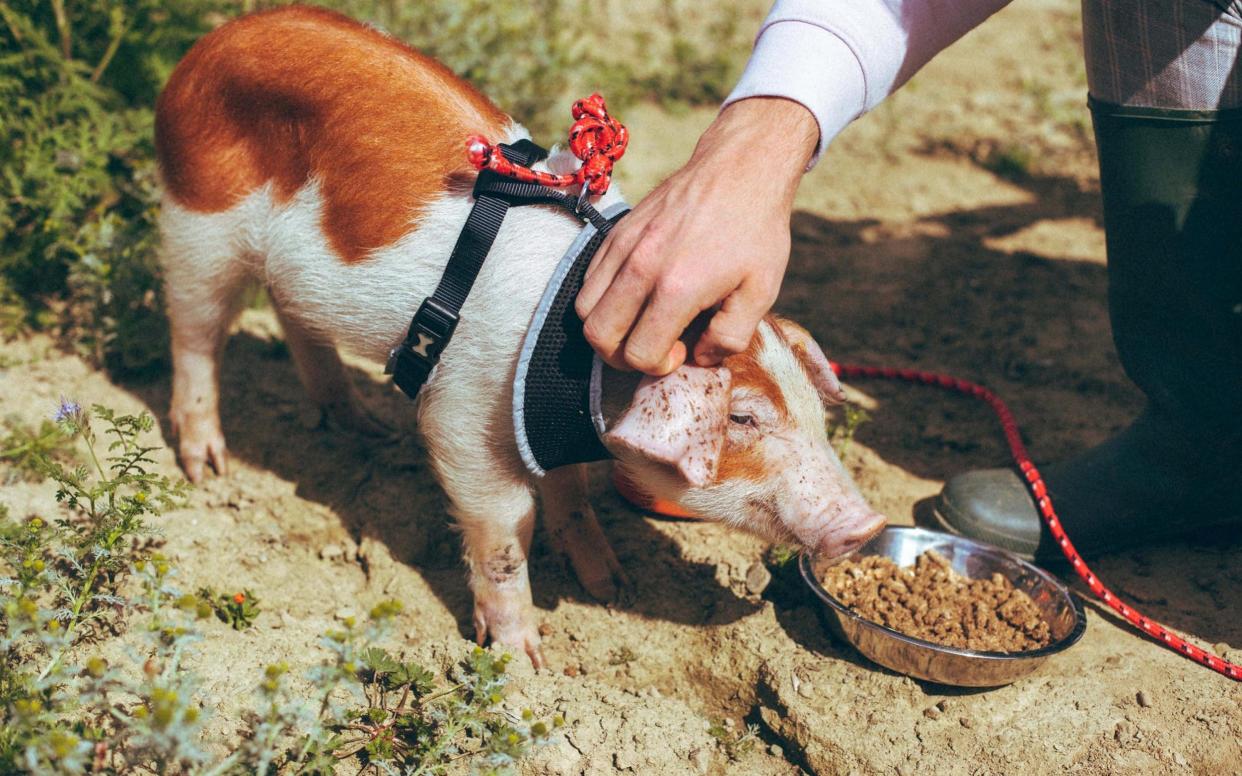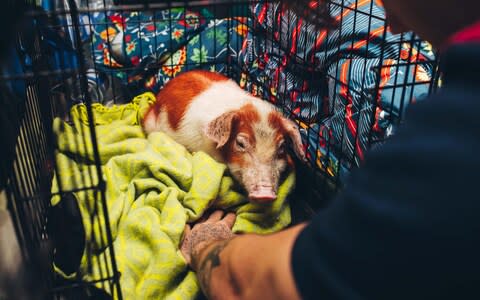Police warn vegans not to steal animals for social media likes

Police have warned vegans not to steal animals for social media likes in wake of Channel 4 documentary How to Steal Pigs and Influence People.
A rural crime unit pointed out that breaking into a farm could result in all the animals being destroyed as it risked breaching procedures designed to prevent the spread of infectious diseases.
The National Rural Crime Network (NCRN), made up of police and crime commissioners and police forces across England and Wales, has now written to Ofcom asking for it to investigate whether the programme breached broadcasting rules.
The documentary, which aired on Tuesday night, looked at the ways in which vegan activists are using social media channels, including Instagram and YouTube, to further their cause.
One of those the documentary centred on was “pignapper” Wesley Omar, 23, who films himself breaking into farms and stealing pigs before they go to slaughter.
After it aired the Cheshire Police Rural Crime Unit put out a message on Twitter from Sgt. Rob Simpson warning: “We support peoples varied lifestyle choices, but stealing livestock is a crime. Committing crime for social media likes and then risking the biosecurity of the farm, could result in all the livestock being destroyed.”

Channel 4 had been forced to defended the programme before it had even aired after complaints from The National Pig Association and the four UK farming unions, including the NFU.
Julia Mulligan, chair of the NRCN and Police, Fire and Crime Commissioner for North Yorkshire, said that they did not agree with the broadcasters insistence that the show “did not glamorise or condone illegal activity”.
In a letter to Ofcom Interim Chief Executive Jonathan Oxley, she wrote: “We believe the programme itself, and particularly the title and promotion ahead of broadcast, explicitly glamorises illegal activity.”
The network asked the regulator to examine whether it breached broadcasting rules surrounding encouraging crime or disorder.
“Farmers are all too often living in fear of being targeted by crimes such as those seemingly normalised and glamorised by this programme. And farmers do not live on their farms on their own,” Ms Mulligan wrote.
“Farms are home to families, they are at the heart of rural communities. Rural crime is not a joke. Offences must not be trivialised. Victims do not deserve to be belittled.”
A Channel 4 spokesman said: "This is an observational documentary on a relevant and topical subject which is widely discussed.
"The programme reported on activities that take place in our society. The programme complies with the Ofcom Broadcasting Code and does not condone or encourage criminal activity. It made it clear that the man who stole the pig was arrested, convicted and given a community service order."
Ofcom said that it had by last night received a total of 188 complaints about the show and where assessing it before deciding whether or not to launch an investigation.
Mo Metcalf-Fisher, a spokesman for the Countryside Alliance, said: “While criminals roam the countryside committing acts of theft for a chance of fame on Instagram, farmers lives are being ruined.
“Portraying these people as so-called ‘influencers’ worthy of a documentary which effectively glamourizes their appalling behaviour, is a step too far. It does nothing to assure farming and rural communities that the channel aren’t pursuing an anti-farming agenda’”


